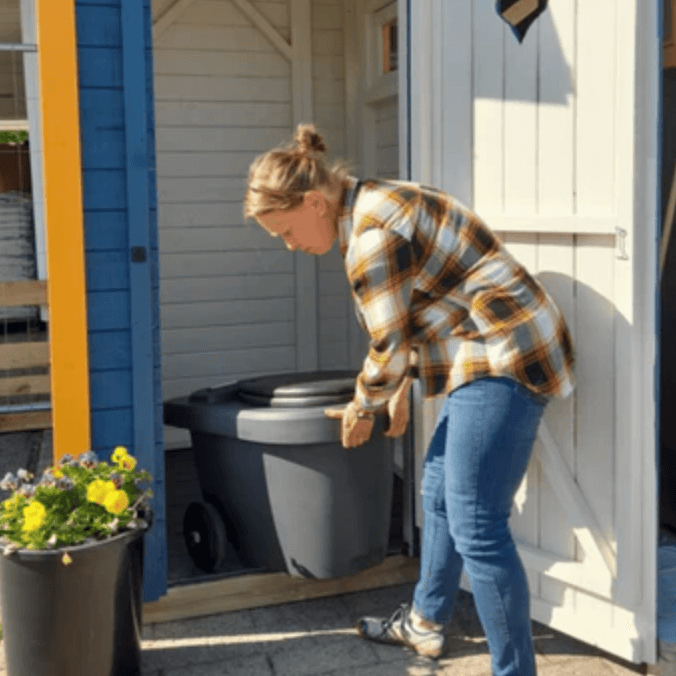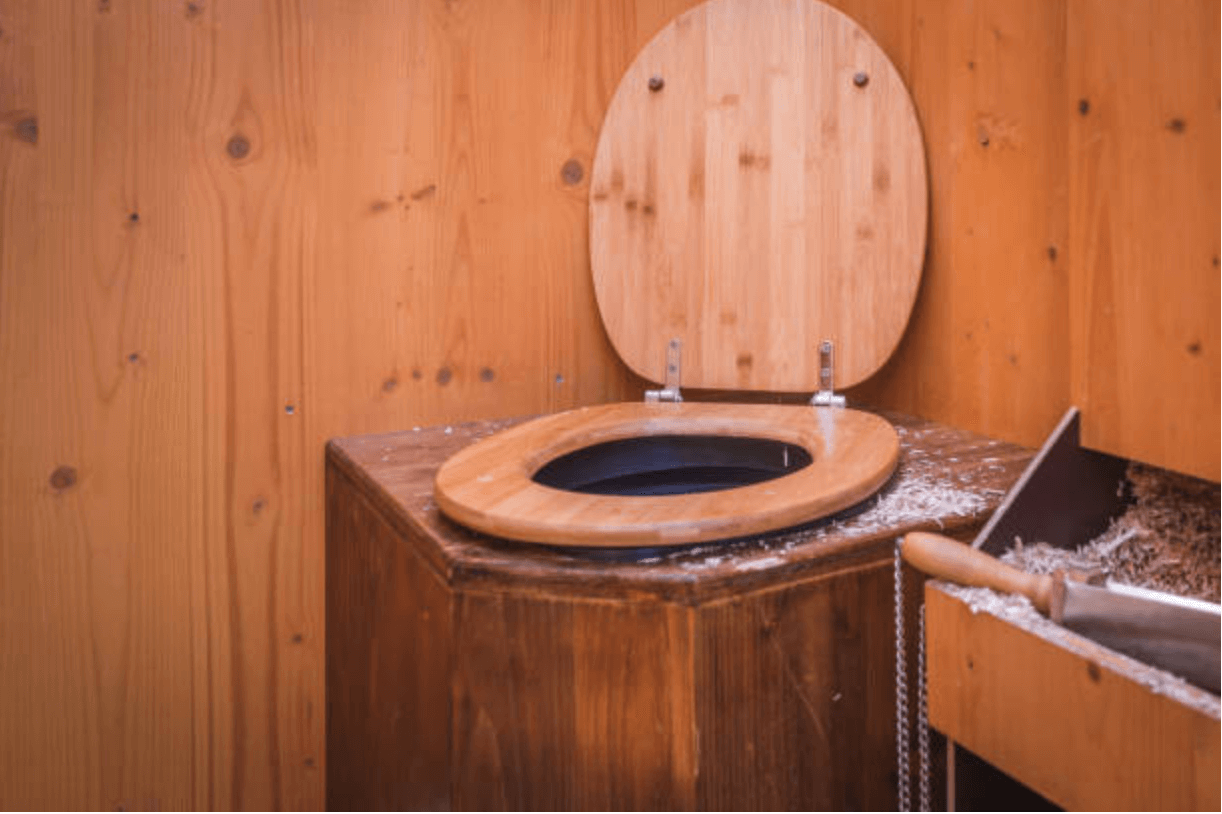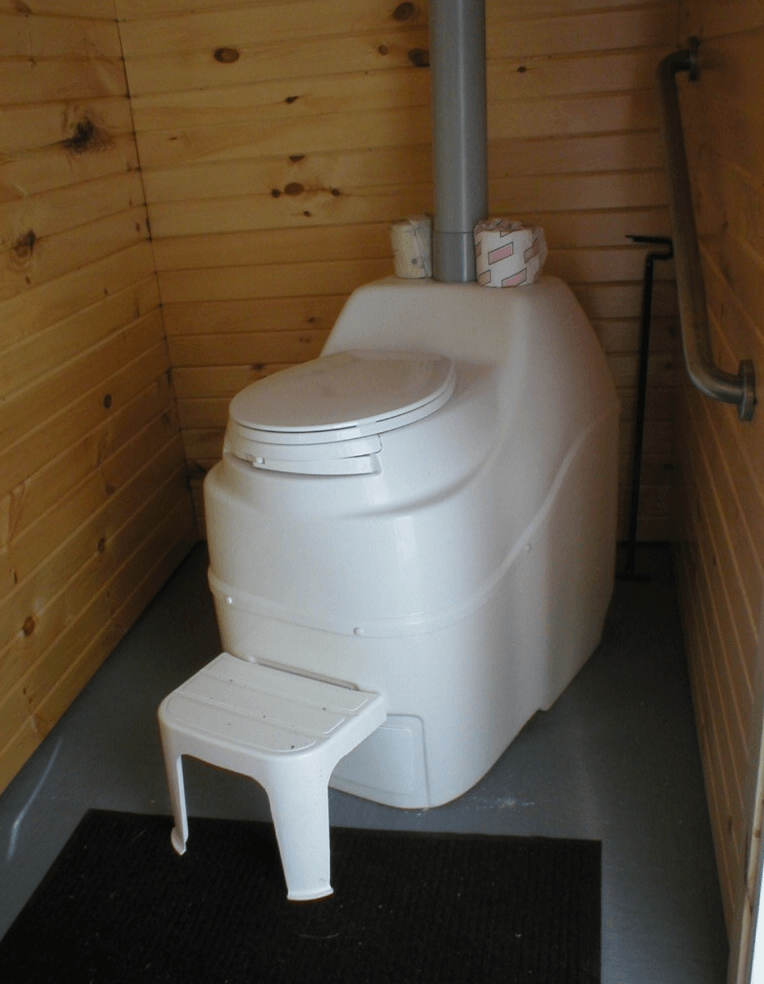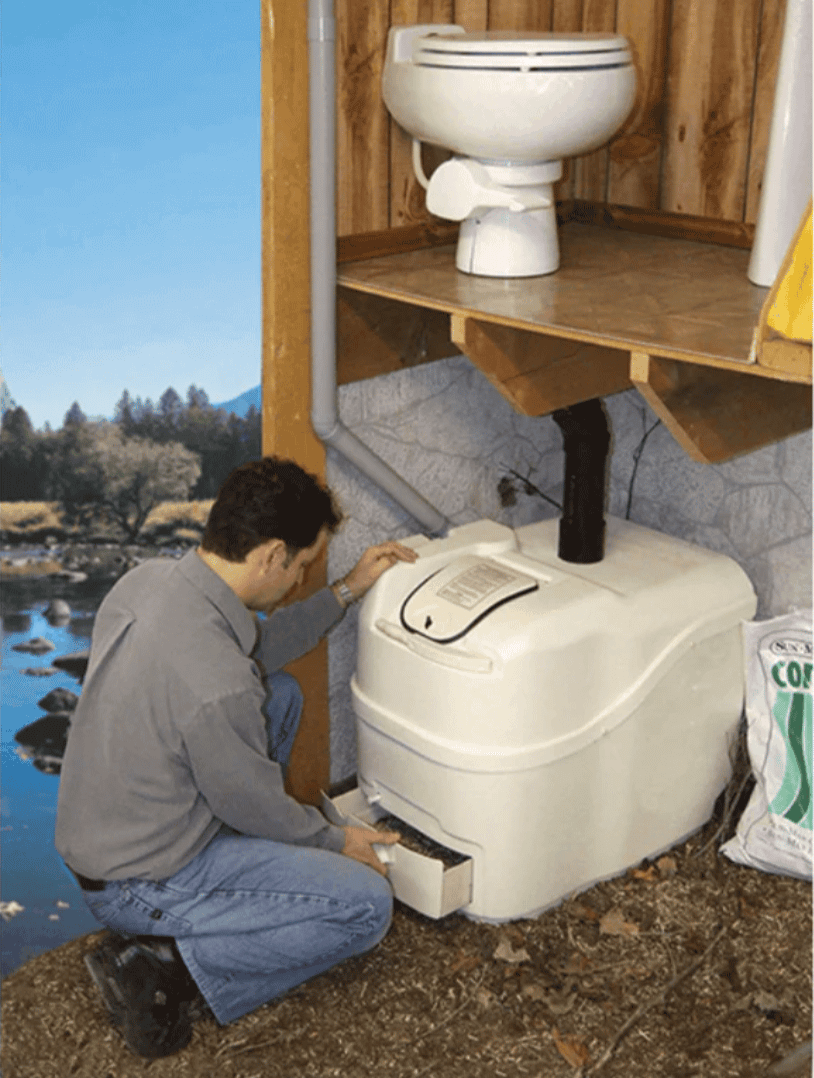If you’re looking to add a basement toilet or a full basement bathroom without the headache of extensive plumbing work, a composting toilet is what you need. Unlike traditional toilets, composting toilets don’t require a sewer line, septic tank, or extensive water supply, making them an ideal solution for any basement where plumbing upgrades can be either costly or inconvenient. Here’s why switching to a composting toilet could save you time, money, and free you from future plumbing issues.

At a Glance
A composting toilet for your basement is a cost-effective, eco-friendly alternative to traditional toilets, eliminating the need for extensive plumbing and saving on water bills. Unlike regular toilets, composting units are waterless, easy to install, and low maintenance, making them ideal for spaces like basements where plumbing upgrades can be expensive. They reduce waste, conserve water, and offer a sustainable solution for households looking to add a bathroom without the hassle of major renovations.
Key Benefits of Composting Toilets for Basement Toilets
- Waterless, which means no plumbing needed for flushing and lower water bills
- Simple to install, with no need for plumbing changes or a macerator pump
- Requires less maintenance than traditional toilets
- Great for eco-friendly households or those with small basements
Why Composting Toilets?
Composting toilets offer a multitude of benefits, making them an excellent choice for basement bathrooms. One of the standout advantages is water conservation. Unlike traditional toilets that can use up to 3.5 gallons of water per flush, composting toilets use little to no water. This can save up to 6,600 gallons of water per person per year, which is particularly beneficial in areas with limited water supply or for those aiming to reduce their environmental footprint.
Another significant benefit is the reduction of waste. Composting toilets utilize natural processes to break down human waste, eliminating the need for chemical treatments and significantly reducing the amount of waste sent to landfills. The end product is nutrient-rich compost that can be used for gardening and landscaping, turning waste into a valuable resource.

Cost-effectiveness is another key advantage. Composting toilets eliminate the need for expensive plumbing and sewage systems, making them an ideal choice for basement bathrooms. They are also low maintenance, requiring only occasional emptying of the compost bin and cleaning of the toilet seat. This simplicity translates to fewer headaches and more savings over time.
No Plumbing Upgrades Required
One of the major advantages of using a composting toilet in your basement is that you can bypass the need for a full-blown toilet system connected to your home’s existing sewage system. Traditional basement toilets, like upflush toilets or macerating toilets, require intricate plumbing installations, including macerator pumps or a macerating toilet system to manage solid waste and transport it to the main sewer line. These systems, while effective, come with installation challenges, a higher price tag, and more moving parts that can break over time.
With a composting toilet, the setup is simple and hassle free. There’s no need to install a toilet tank, macerator pump, or deal with extensive plumbing to manage human waste. Composting toilets require minimal contact with your home’s water supply, making them incredibly efficient and easy to install in spaces like a basement or even an RV.
Save Money on Water Bills
A regular toilet can use up to 3.5 gallons of water per flush. Over time, this adds up—especially if you’re using the basement bathroom as an extra bathroom for guests or family members. Composting toilets, on the other hand, are waterless systems that eliminate the need for flushing altogether. This means lower water consumption, fewer toilet paper clogs, and ultimately, lower water bills. You’ll also avoid potential water leaks or plumbing issues that can result from worn-out pipes or faulty seals, which are common with traditional toilet units.
Less Maintenance and Plumbing Issues

Traditional toilets often face issues like clogs, leaks, and even sewage backups due to improper installation or just because of their age. A composting toilet eliminates these concerns. Since composting toilets don’t rely on water or a complex plumbing system to process waste, there’s no risk of water leaks, broken seals, or faulty pumps. The lack of moving parts makes composting toilets a reliable, cost-effective alternative to other toilet systems, including upflush toilets.
Eco-Friendly and Efficient
Composting toilets are not only better for your wallet but also for the environment. These units are designed to process solid waste and urine into usable compost that you can then use on your gardens, reducing the strain on your home’s septic tank or municipal sewage system. Whether you’re building the perfect basement or just looking to reduce your environmental footprint, composting toilets are well-suited for both residential and commercial use.
Easy to Install

One of the biggest perks of a composting toilet is its easy-to-install design. Whether you’re transforming your basement bathroom or just want a toilet for a small room, most composting toilets come as complete units with minimal installation requirements. Unlike traditional toilets and upflush toilet systems, which can involve cutting through the floor and connecting to your home’s sewage system, composting toilets can be placed in almost any space with minimal setup.
Healthier and Safer
When it comes to basement toilets, health and safety are a real concern, considering how little ventilation basements usually get. Traditional toilets can pose risks such as waterborne illnesses due to bacteria and other microorganisms that thrive in water. These pathogens can contaminate water supplies and pose significant health risks.
Composting toilets offer solutions to these concerns. They use natural processes to break down waste, eliminating the need for chemical treatments and reducing the risk of waterborne illnesses.
Odors and gases are another health and safety concern with traditional toilets. Composting toilets are designed to be odor-free and gas-free, making them ideal for basement bathrooms. These systems ensure that unpleasant smells and potentially harmful gases are effectively managed, contributing to a healthier and more comfortable living environment.
In conclusion, composting toilets offer significant benefits, including water conservation, waste reduction, and cost-effectiveness. When choosing a composting toilet for your basement, consider factors such as size, type, and maintenance requirements.
Conclusion
Adding a composting toilet to your basement is a smart investment, providing a hassle-free, efficient, and environmentally friendly alternative to traditional toilets. By saving on both water usage and plumbing costs, you can enjoy the convenience of an extra bathroom without the stress of a major renovation.
Switching to a composting toilet for your basement means embracing a simpler, more efficient solution that delivers long-term savings and peace of mind. Whether you’re setting up a new bathroom or enhancing your basement for family or guests, a composting toilet can make the process cost-effective and stress-free.
